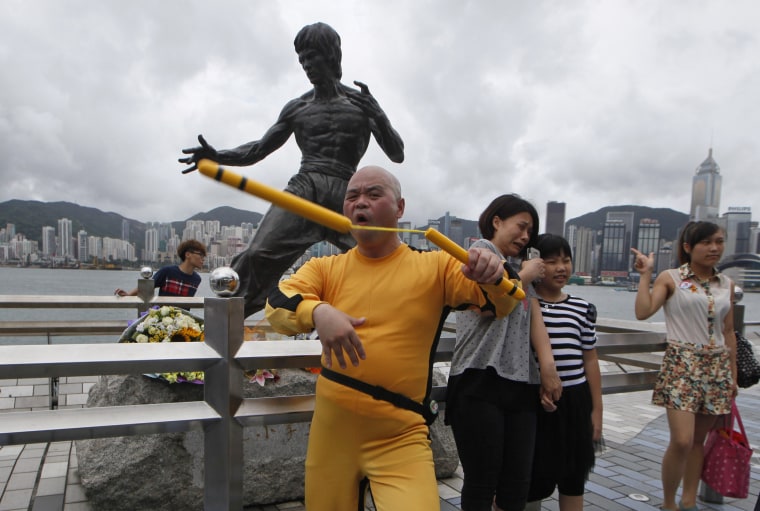A federal judge knocked down a New York state law banning nunchucks that dated to the 1970s, when martial arts star Bruce Lee popularized them in his movies by whipping around the twin sticks linked by a chain.
U.S. District Court Judge Pamela Chen sided with an amateur martial artist who opposed the ban, reasoning that the right to bear arms protected by the Second Amendment of the U.S. Constitution applies not just to firearms but also to nunchucks.
The 44-year-old law that makes possession of "chuka sticks" a crime is "an unconstitutional restriction on the right to bear arms under the Second Amendment and are, therefore, void," Chen wrote in a judgment rendered on Friday in U.S. District Court in Brooklyn.
The law was challenged by James Maloney, who claimed the ban prevented him from teaching his twin sons a martial arts form that used nunchucks.
Nunchucks are a traditional martial arts weapon developed in Okinawa and made famous in Lee's 1970s martial arts movies. The connected sticks, made of heavy wood, plastic or metal, can be whipped around or, held in each hand, used to choke an opponent.
Evidence introduced during the trial showed that at least 64,890 wood or metal nunchucks were sold in the United States in the past 23 years.
In her 27-page ruling, Chen said Nassau County District Attorney Madeline Singas, the defendant in Maloney's lawsuit, had failed to provide sufficient evidence that possession of nunchucks, also known as nunchakus, should not be protected by the Second Amendment.
"Simply put, Defendant does not contradict the contention that the nunchaku's primary use, which Defendant concedes is as 'a tool from the sphere of martial arts' ... is a lawful one," the judge wrote.
Chen's ruling, however, left open the possibility that the state could at some point present further evidence that might lead to a ban or restriction of nunchucks.
